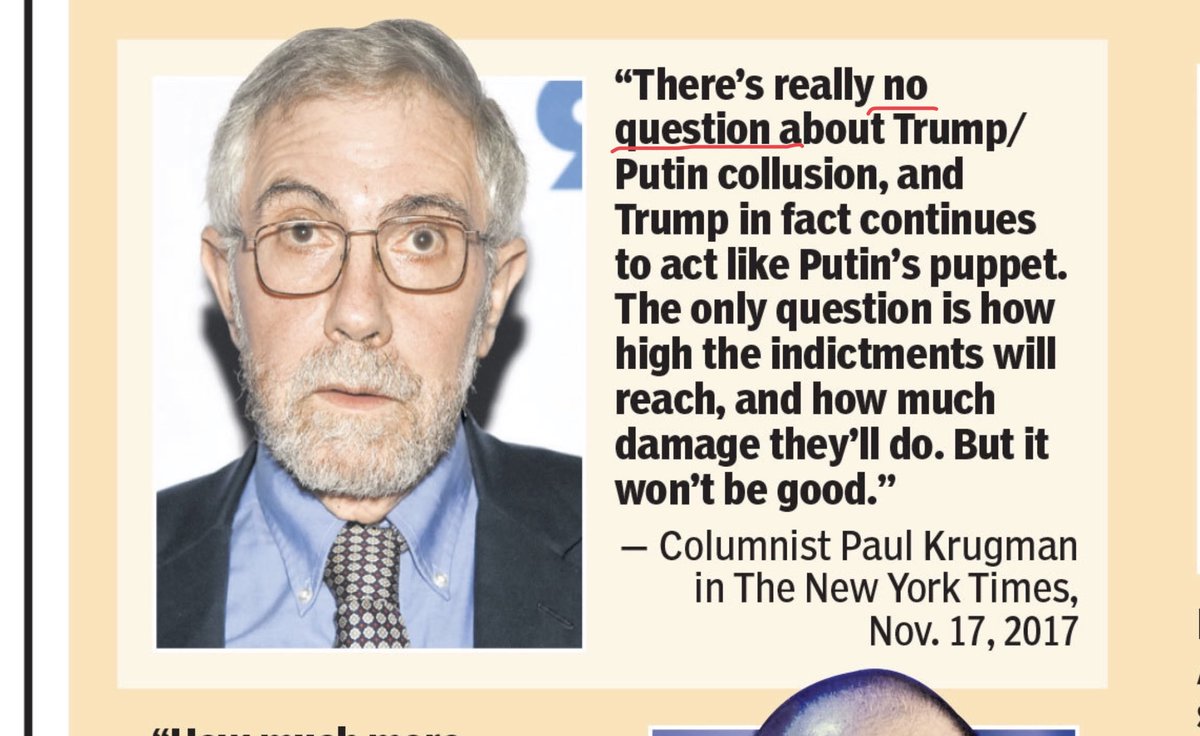The Fed
-
Martin Hash

- Posts: 19171
- Joined: Wed Jan 20, 2010 2:02 pm
Re: The Fed
“Money is imaginary.” - me
Shamedia, Shamdemic, Shamucation, Shamlection, Shamconomy & Shamate Change
-
Fife

- Posts: 15157
- Joined: Wed Nov 30, 2016 9:47 am
Re: The Fed
Here's an interesting read from FFF, much of which discusses how federal city is great at printing money but fantastically inept at actually producing anything.
Assuming the best possible intentions (which I don't see any good reason to do), aggregate supply (imaginary "production") is a dangerous folly for the state to get mixed up in.
The Myth of Aggregate Demand and Supply
Assuming the best possible intentions (which I don't see any good reason to do), aggregate supply (imaginary "production") is a dangerous folly for the state to get mixed up in.
The Myth of Aggregate Demand and Supply
The Keynesian Aggregate Big Spender Unbalances Markets
In this simplified and, indeed, simplistic Keynesian-type view of things, all that needs to be done from the government’s policy perspective is to run budget deficits or create money through the banking system to push up aggregate demand to ensure a targeted rise in the general price level so profit margins in general are widened relative to the general wage level so employment in general will be expanded.
We can think of a Keynesian-inspired government as a big spender who comes into a town and proceeds to increase aggregate demand in this community by buying goods. Prices of final outputs rise; profit margins widen relative to the general wage level and the prices of other general costs. Private businesses, in general, employ more workers and purchase or hire other inputs, and aggregate supply expands to a point of desired full employment.
An additional core error and misconception in the macro-aggregate approach is its failure to appreciate and focus on the real impact of changes in the money supply and government spending that by necessity result in an unsustainable deviation of prices, profits, and resources and labor uses from a properly balanced coordination, the end result of which is more of the very unemployment that the monetary and spending “stimulus” was meant to cure.
Let’s return to our example of the big spender who comes into a town. The townspeople discover that our big spender introduces a greater demand into the community, but not for goods in general. Instead, he announces his intention of building a new factory on the outskirts of the town.
He leases a particular piece of land and pays for the first few months’ rent. He hires a particular construction company to build the factory, and the construction company in turn not only increases its demand for workers, but orders new equipment, which, in turn, results in the equipment manufacturers adding to their workforce to fulfill the new demand for construction machinery.
Our big spender, trumpeting the wonders for the community resulting from his new spending, starts hiring clerical staff and sales personnel in anticipation of fulfilling orders once the factory is completed and producing its new output.
The new and higher incomes earned by the construction and machinery workers, as well as the newly employed clerical and sales workers, raise the demand for various and specific consumer and other goods upon which these people want to spend their new and increased wages.
The businesses in the town catering to these particular increased consumer demands now attempt to expand their supplies and perhaps hire more retail-store employees. Over time, the prices of all of these goods and services will start to rise, but not at the same time or to the same degree. They will go up in a temporal sequence that more or less tends to match the sequence of the changed demands for those goods and services resulting from the new money injected by the big spender into this community.
Aggregate Spending Needs to Continue and Increase
Now, whether some of the individual workers drawn into this specific pattern of new employments were previously unemployed or whether they had to be attracted away from existing jobs they already held in other parts of the market, their continued employments in these particular jobs depend on the big spender continuing to spend his new money, time period after time period, in the same way and in sufficient amounts to ensure that the workers he has drawn into his factory project are not attracted to other employments because of the rise in all of these alternative demands.
If the interdependent patterns of demands and supplies and the structure of interconnected relative prices and wages generated by the big spender’s spending are to be maintained, his injection of new money into the community must continue, and at an increasing rate.
An alternative imagery might be the dropping of a pebble into a pond. From the epicenter where the stone has hit the surface a sequence of ripples will be sent out that will be reversed when the ripples finally hit the surrounding shore and will then finally cease when there are no longer any new disturbances affecting the surface.
But new pebbles must be continuously dropped into the pond and with increasing force if the resulting waves coming back from the shore are not to disrupt the ripple pattern.
-
Fife

- Posts: 15157
- Joined: Wed Nov 30, 2016 9:47 am
-
Fife

- Posts: 15157
- Joined: Wed Nov 30, 2016 9:47 am
Re: The Fed
Jeff Deist:
A Modest Proposal for the Fed
A Modest Proposal for the Fed
So here's a modest proposal for the Federal Reserve officials, and a challenge to economists who reject Austrian views on QE and business cycles in general:
Return the Fed's balance sheet to its pre-2008 level, by selling assets and/or letting assets mature. Do this over an identical six year period that mirrors the timeline for QE 1, 2, and 3. Do so at a rate and volume similar to which purchases were made during that period. For transparency, and to calm markets, announce this plan ahead of time.
In other words, return the country to "ordinary" monetary policy. After all, the crisis is over and the economy is healthy, right? If Austrians are wrong, if in fact QE saved the country and wasn't merely an artificial process of juicing the economy and monetizing debt, it can and must be fully unwound.
In fact the St. Louis Fed president James Bullard nearly promised as much back in those quaint days of 2010:
The (FOMC) has often stated its intention to return the Fed balance sheet to normal, pre-crisis levels over time. Once that occurs, the Treasury will be left with just as much debt held by the public as before the Fed took any of these actions.
So how about it, Mr. Powell? A real economy operates without ultra-low interest rates and activist central bank stimulus. You've wavered lately; suggesting even the painfully slow process of QE tapering may be halted. Don't make Mr. Bullard a liar, or at least a bad prognosticator. And don't make Mr. Bernanke your permanent silent partner when it comes to Fed governance. Do what must be done, take the patient off its feeding tube, and make history as the first modern Fed Chair who allowed the US economy to rebuild itself on real capital instead of debt.
Shrink the Fed's balance sheet and we can talk about whether QE "worked." Until then, we can't know if economic growth is real or artificial.
-
heydaralon

- Posts: 7571
- Joined: Thu Mar 16, 2017 7:54 pm
Re: The Fed
Dumb question:Fife wrote: Mon Mar 11, 2019 11:00 am Jeff Deist:
A Modest Proposal for the Fed
So here's a modest proposal for the Federal Reserve officials, and a challenge to economists who reject Austrian views on QE and business cycles in general:
Return the Fed's balance sheet to its pre-2008 level, by selling assets and/or letting assets mature. Do this over an identical six year period that mirrors the timeline for QE 1, 2, and 3. Do so at a rate and volume similar to which purchases were made during that period. For transparency, and to calm markets, announce this plan ahead of time.
In other words, return the country to "ordinary" monetary policy. After all, the crisis is over and the economy is healthy, right? If Austrians are wrong, if in fact QE saved the country and wasn't merely an artificial process of juicing the economy and monetizing debt, it can and must be fully unwound.
In fact the St. Louis Fed president James Bullard nearly promised as much back in those quaint days of 2010:
The (FOMC) has often stated its intention to return the Fed balance sheet to normal, pre-crisis levels over time. Once that occurs, the Treasury will be left with just as much debt held by the public as before the Fed took any of these actions.
So how about it, Mr. Powell? A real economy operates without ultra-low interest rates and activist central bank stimulus. You've wavered lately; suggesting even the painfully slow process of QE tapering may be halted. Don't make Mr. Bullard a liar, or at least a bad prognosticator. And don't make Mr. Bernanke your permanent silent partner when it comes to Fed governance. Do what must be done, take the patient off its feeding tube, and make history as the first modern Fed Chair who allowed the US economy to rebuild itself on real capital instead of debt.
Shrink the Fed's balance sheet and we can talk about whether QE "worked." Until then, we can't know if economic growth is real or artificial.
If the growth is artificial, won't we know fairly soon anyway when shits starts going haywire?
Shikata ga nai
-
Fife

- Posts: 15157
- Joined: Wed Nov 30, 2016 9:47 am
Re: The Fed
Not a dumb question, and of course we will.
Deist is being rhetorical of course, to expose the cynicism and hypocrisy of the Fed.
There will be no slowing of the inflation until the aorta ruptures.
The joy of MMT, everyone.
Deist is being rhetorical of course, to expose the cynicism and hypocrisy of the Fed.
There will be no slowing of the inflation until the aorta ruptures.
The joy of MMT, everyone.
-
SuburbanFarmer

- Posts: 25434
- Joined: Wed Nov 30, 2016 6:50 am
- Location: Ohio
Re: The Fed
Lol the market panics every time they hint at slowing down the stimulus.
-
Ph64
- Posts: 2434
- Joined: Wed Feb 08, 2017 10:34 pm
Re: The Fed
Dimes and quarters have serrated edges to prevent people from filing the edges and collecting the silver dust to sell. Dimes and quarters haven't been made with silver since 1964. A 1964 quarter contains $2.79 of silver at today's price.
coun·ter·feit
[ˈkoun(t)ərˌfit]
ADJECTIVE
made in exact imitation of something valuable or important with the intention to deceive or defraud.
"two men were remanded on bail on a charge of passing counterfeit $10 bills"
synonyms:
fake · faked · copied · forged · feigned · simulated · [more]
NOUN
a fraudulent imitation of something else; a forgery.
"he knew the tapes to be counterfeits"
synonyms:
fake · forgery · copy · reproduction · replica · [more]
-
heydaralon

- Posts: 7571
- Joined: Thu Mar 16, 2017 7:54 pm
Re: The Fed
Is there a particular economist that you respect? You mentioned you are not a fan of Keynes. Do you like Hayek? What about Hyman Minsky?Fife wrote: Mon Mar 11, 2019 12:50 pm Not a dumb question, and of course we will.
Deist is being rhetorical of course, to expose the cynicism and hypocrisy of the Fed.
There will be no slowing of the inflation until the aorta ruptures.
The joy of MMT, everyone.
Shikata ga nai
-
Fife

- Posts: 15157
- Joined: Wed Nov 30, 2016 9:47 am
Re: The Fed
This week in Conspiracy Nuthouse Hot Takes has something wonderful for almost every thread.


